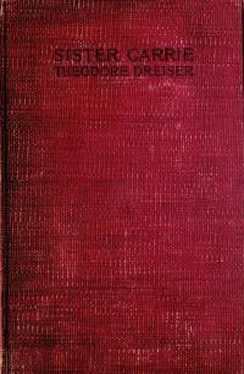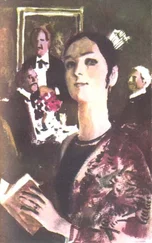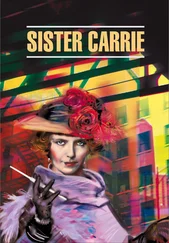Теодор Драйзер - Sister Carrie
Здесь есть возможность читать онлайн «Теодор Драйзер - Sister Carrie» — ознакомительный отрывок электронной книги совершенно бесплатно, а после прочтения отрывка купить полную версию. В некоторых случаях можно слушать аудио, скачать через торрент в формате fb2 и присутствует краткое содержание. Год выпуска: 2004, Жанр: Классическая проза, на английском языке. Описание произведения, (предисловие) а так же отзывы посетителей доступны на портале библиотеки ЛибКат.
- Название:Sister Carrie
- Автор:
- Жанр:
- Год:2004
- ISBN:нет данных
- Рейтинг книги:4 / 5. Голосов: 1
-
Избранное:Добавить в избранное
- Отзывы:
-
Ваша оценка:
- 80
- 1
- 2
- 3
- 4
- 5
Sister Carrie: краткое содержание, описание и аннотация
Предлагаем к чтению аннотацию, описание, краткое содержание или предисловие (зависит от того, что написал сам автор книги «Sister Carrie»). Если вы не нашли необходимую информацию о книге — напишите в комментариях, мы постараемся отыскать её.
Sister Carrie — читать онлайн ознакомительный отрывок
Ниже представлен текст книги, разбитый по страницам. Система сохранения места последней прочитанной страницы, позволяет с удобством читать онлайн бесплатно книгу «Sister Carrie», без необходимости каждый раз заново искать на чём Вы остановились. Поставьте закладку, и сможете в любой момент перейти на страницу, на которой закончили чтение.
Интервал:
Закладка:
"Indeed I do," said Carrie, not catching his drift.
"I should think we could get a smaller place," he suggested. "We don't need four rooms."
Her countenance, had he been scrutinising her, would have exhibited the disturbance she felt at this evidence of his determination to stay by her. He saw nothing remarkable in asking her to come down lower.
"Oh, I don't know," she answered, growing wary.
"There must be places around here where we could get a couple of rooms, which would do just as well."
Her heart revolted. "Never!" she thought. Who would furnish the money to move? To think of being in two rooms with him! She resolved to spend her money for clothes quickly, before something terrible happened. That very day she did it. Having done so, there was but one other thing to do.
"Lola," she said, visiting her friend, "I think I'll come."
"Oh, jolly!" cried the latter.
"Can we get it right away?" she asked, meaning the room.
"Certainly," cried Lola.
They went to look at it. Carrie had saved ten dollars from her expenditures—enough for this and her board beside. Her enlarged salary would not begin for ten days yet—would not reach her for seventeen. She paid half of the six dollars with her friend.
"Now, I've just enough to get on to the end of the week," she confided.
"Oh, I've got some," said Lola. "I've got twenty-five dollars, if you need it."
"No," said Carrie. "I guess I'll get along."
They decided to move Friday, which was two days away. Now that the thing was settled, Carrie's heart misgave her. She felt very much like a criminal in the matter. Each day looking at Hurstwood, she had realised that, along with the disagreeableness of his attitude, there was something pathetic.
She looked at him the same evening she had made up her mind to go, and now he seemed not so shiftless and worthless, but run down and beaten upon by chance. His eyes were not keen, his face marked, his hands flabby. She thought his hair had a touch of grey. All unconscious of his doom, he rocked and read his paper, while she glanced at him.
Knowing that the end was so near, she became rather solicitous.
"Will you go over and get some canned peaches?" she asked Hurstwood, laying down a two-dollar bill.
"Certainly," he said, looking in wonder at the money.
"See if you can get some nice asparagus," she added. "I'll cook it for dinner."
Hurstwood rose and took the money, slipping on his overcoat and getting his hat. Carrie noticed that both of these articles of apparel were old and poor looking in appearance. It was plain enough before, but now it came home with peculiar force. Perhaps he couldn't help it, after all. He had done well in Chicago. She remembered his fine appearance the days he had met her in the park. Then he was so sprightly, so clean. Had it been all his fault?
He came back and laid the change down with the food.
"You'd better keep it," she observed. "We'll need other things."
"No," he said, with a sort of pride; "you keep it."
"Oh, go on and keep it," she replied, rather unnerved. "There'll be other things."
He wondered at this, not knowing the pathetic figure he had become in her eyes. She restrained herself with difficulty from showing a quaver in her voice.
To say truly, this would have been Carrie's attitude in any case. She had looked back at times upon her parting from Drouet and had regretted that she had served him so badly. She hoped she would never meet him again, but she was ashamed of her conduct. Not that she had any choice in the final separation. She had gone willingly to seek him, with sympathy in her heart, when Hurstwood had reported him ill. There was something cruel somewhere, and not being able to track it mentally to its logical lair, she concluded with feeling that he would never understand what Hurstwood had done and would see hard-hearted decision in her deed; hence her shame. Not that she cared for him. She did not want to make any one who had been good to her feel badly.
She did not realise what she was doing by allowing these feelings to possess her. Hurstwood, noticing the kindness, conceived better of her. "Carrie's good-natured, anyhow," he thought.
Going to Miss Osborne's that afternoon, she found that little lady packing and singing.
"Why don't you come over with me to-day?" she asked.
"Oh, I can't," said Carrie. "I'll be there Friday. Would you mind lending me the twenty-five dollars you spoke of?"
"Why, no," said Lola, going for her purse.
"I want to get some other things," said Carrie.
"Oh, that's all right," answered the little girl, good-naturedly, glad to be of service.
It had been days since Hurstwood had done more than go to the grocery or to the news-stand. Now the weariness of indoors was upon him—had been for two days—but chill, grey weather had held him back. Friday broke fair and warm. It was one of those lovely harbingers of spring, given as a sign in dreary winter that earth is not forsaken of warmth and beauty. The blue heaven, holding its one golden orb, poured down a crystal wash of warm light. It was plain, from the voice of the sparrows, that all was halcyon outside. Carrie raised the front windows, and felt the south wind blowing.
"It's lovely out to-day," she remarked.
"Is it?" said Hurstwood.
After breakfast, he immediately got his other clothes.
"Will you be back for lunch?" asked Carrie, nervously.
"No," he said.
He went out into the streets and tramped north, along Seventh Avenue, idly fixing upon the Harlem River as an objective point. He had seen some ships up there, the time he had called upon the brewers. He wondered how the territory thereabouts was growing.
Passing Fifty-ninth Street, he took the west side of Central Park, which he followed to Seventy-eighth Street. Then he remembered the neighbourhood and turned over to look at the mass of buildings erected. It was very much improved. The great open spaces were filling up. Coming back, he kept to the Park until 110th Street, and then turned into Seventh Avenue again, reaching the pretty river by one o'clock.
There it ran winding before his gaze, shining brightly in the clear light, between the undulating banks on the right and the tall, tree-covered heights on the left. The spring-like atmosphere woke him to a sense of its loveliness, and for a few moments he stood looking at it, folding his hands behind his back. Then he turned and followed it toward the east side, idly seeking the ships he had seen. It was four o'clock before the waning day, with its suggestion of a cooler evening, caused him to return. He was hungry and would enjoy eating in the warm room.
When he reached the flat by half-past five, it was still dark. He knew that Carrie was not there, not only because there was no light showing through the transom, but because the evening papers were stuck between the outside knob and the door. He opened with his key and went in. Everything was still dark. Lighting the gas, he sat down, preparing to wait a little while. Even if Carrie did come now, dinner would be late. He read until six, then got up to fix something for himself.
As he did so, he noticed that the room seemed a little queer. What was it? He looked around, as if he missed something, and then saw an envelope near where he had been sitting. It spoke for itself, almost without further action on his part.
Reaching over, he took it, a sort of chill settling upon him even while he reached. The crackle of the envelope in his hands was loud. Green paper money lay soft within the note.
"Dear George," he read, crunching the money in one hand. "I'm going away. I'm not coming back any more. It's no use trying to keep up the flat; I can't do it. I wouldn't mind helping you, if I could, but I can't support us both, and pay the rent. I need what little I make to pay for my clothes. I'm leaving twenty dollars. It's all I have just now. You can do whatever you like with the furniture. I won't want it.—CARRIE."
Читать дальшеИнтервал:
Закладка:
Похожие книги на «Sister Carrie»
Представляем Вашему вниманию похожие книги на «Sister Carrie» списком для выбора. Мы отобрали схожую по названию и смыслу литературу в надежде предоставить читателям больше вариантов отыскать новые, интересные, ещё непрочитанные произведения.
Обсуждение, отзывы о книге «Sister Carrie» и просто собственные мнения читателей. Оставьте ваши комментарии, напишите, что Вы думаете о произведении, его смысле или главных героях. Укажите что конкретно понравилось, а что нет, и почему Вы так считаете.









